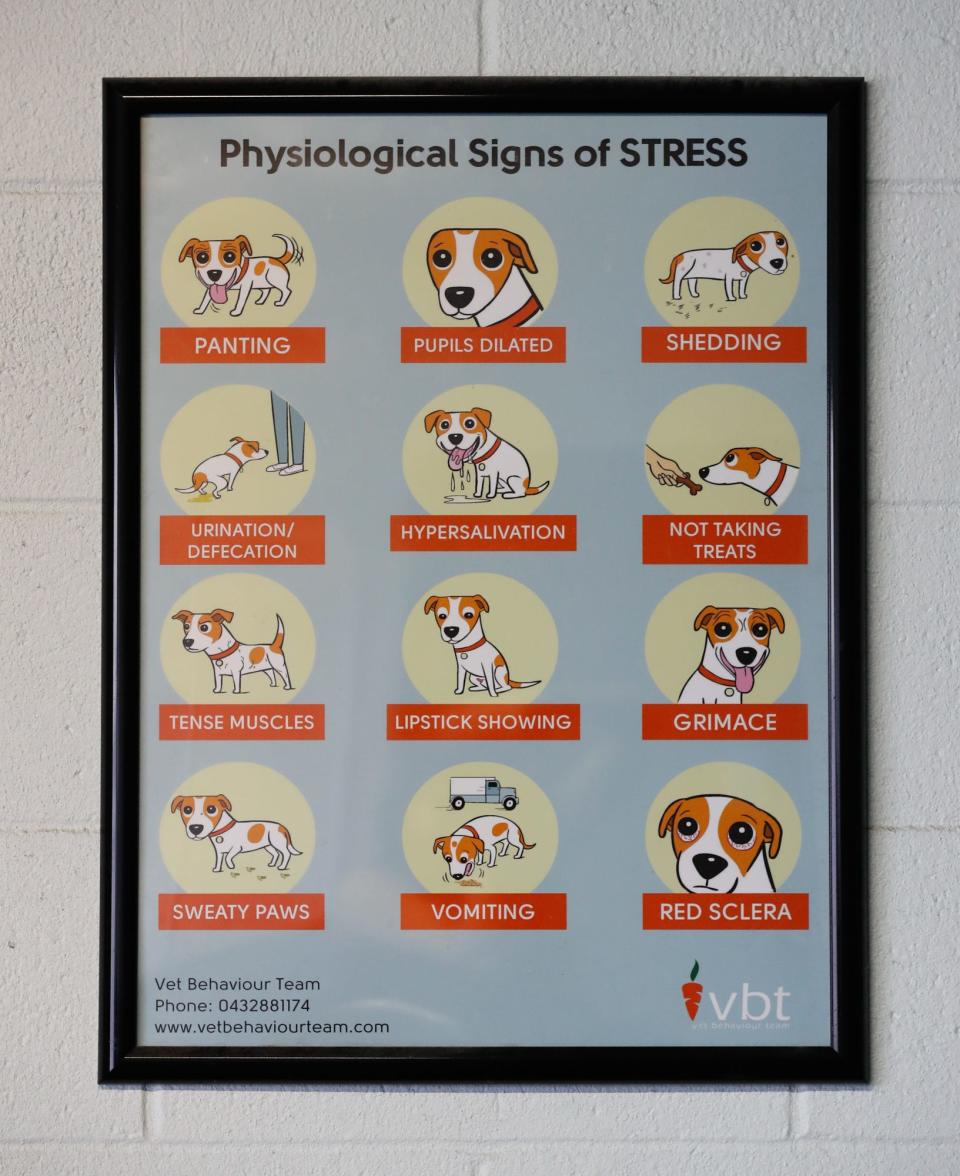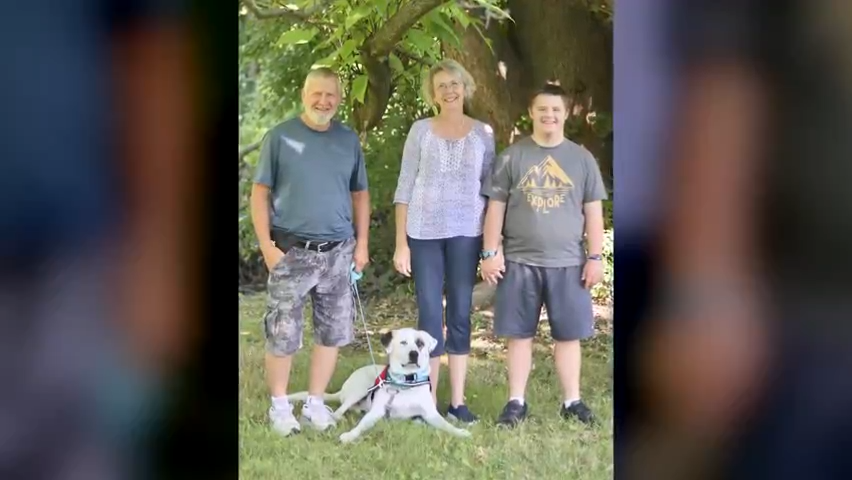This dog waited on the porch for his human, who never came home. Now he has a new job
On an early morning walk with her dog in March, a 50-year-old woman was struck by a pickup on a bridge near Nashville, Tennessee.
The driver fled, and paramedics rushed the woman to the hospital, where she later died. Her dog, a 3-year-old mutt named Patch, ran back to her home to wait.
Police found Patch on the front steps and called Metro Nashville Animal Care and Control shelter. But as workers processed Patch for adoption, they noticed something separated him from most other abandoned dogs.
“He was a sweet, well-behaved dog whose demeanor around the staff suggested he might have some formal training,” said Metro Public Health Department Spokesman Matthew Peters.
The shelter would learn that the victim was visually impaired and suspected Patch had some training, perhaps informally, as a service dog.
What do Medical Mutts Service Dogs do?
The shelter called Medical Mutts Service Dogs in Indianapolis, which rescues dogs and teaches them to be assistants for people with diabetes, epilepsy and other afflictions.
The shelter described an all-white 90-pound mixed breed with a splash of black around his left eye who liked to be petted under his floppy ears and sidle up to humans. No family members had claimed him after his owner was killed, they said. But he doesn't bark and he doesn't bite and he's a good boy.
He might be a good candidate for the training program, they said.
A week later, Patch was in Indianapolis and being prepped as a service dog.
A long wait ended

More than 500 miles away from Nashville, Arthur and Donna Mahanna were also feeling forsaken. The Elkhorn, Wisconsin, couple had been waiting six years for a medical service dog to help their 21-year-old son Nic, who has Down Syndrome.
The wait was so long that one provider they'd registered with went out of business after the family had spent four years on its list.
But the Mahannas were desperate and determined. They were convinced that a service dog would help Nic gain independence and improve his sociability: even a tiny bit would be a great achievement. But more importantly, a dog — with its trained nose — would be able to sense when Nic was agitated and warn his parents that an episode might be starting.
So the Mahannas got on another list, at Medical Mutts, and waited some more.
Two years later, they got the call. Medical Mutts had rescued a dog from Tennessee, was training him, and he looked like a good match for Nic.
The Mahanna family came to Indianapolis for 10 days of training with Patch in August. As soon as Nic walked in the door, the pooch knew who he was — there was something in the air.
“We had to send a scent sample beforehand,” said Donna Mahanna. That meant taking a swab of Nic's sweat, freezing it and mailing it to Medical Mutts. “Patch was aware it was Nic."
Patch is now Nic’s full-time companion, calming him down and alerting his parents when he gets agitated; and preventing him from wandering when they go on walks.
“I’m not sure who needed who more,” Donna Mahanna said. “They are two peas in a pod.”
Nic, who also suffers from autism spectrum disorder, rarely speaks. But he talks to Patch.

“When he met Patch he said, ‘How are you, doggy’?” Donna Mahanna said. ”That’s more than he says in an entire day.”
Medical Mutts Trainer Eva Rudisile said the pair "get along splendidly,”
“When Nic pets Patch they both settle down together,” Rudisile said. "And he's already a very easy-going dog."
'A sense of relief'
Patch’s main job is to let Nic’s parents know when Nic is agitated and to calm him down before it escalates.
“Before, we would suspect agitation but communicating with him was hard, he's non-communicative,” Arthur said. “We tried several approaches over the years but nothing seemed to work, which is why we decided a dog might help.”
The dog can sniff out Nic's agitation from the change in his scent and responds by leaning his body into him to calm him down. Patch more often pulls duty on the night shift, when Nic is sleeping, and regularly gets agitated.
“He interrupts Nic and puts pressure on his body or into his lap,” Donna Mahanna said. “It has helped his sleep already.”
By feeding and walking Patch, Nic has gained confidence and independence. Previously Nic’s mother or father had to hold his hand on walks but Patch has a double leash, so a parent and Nic are both attached to the dog but not to each other.
Nic is also less likely to let go of the leash than his mother's hand and go wandering on his own. Patch will let Nic know he’s going too far by plopping down on the ground, or "anchoring."
Donna and Arthur said the addition of Patch to the family has helped them as much as it has Nic.
“It has given us a sense of relief,” Donna Mahanna said. “We were his everything for 21 years, now there is help.”
Call IndyStar reporter John Tuohy at 317-444-6418 or email him at john.tuohy@indystar.com. Follow him on Facebook and X/Twitter.
This article originally appeared on Indianapolis Star: Dog that ran back to Tennessee home after owner killed has new job

